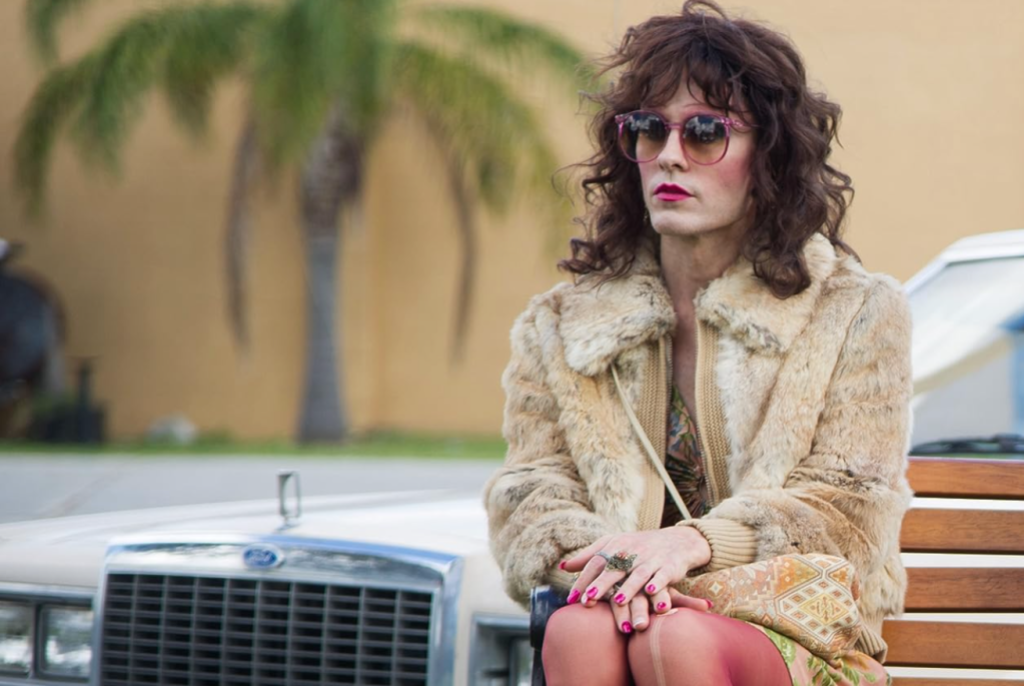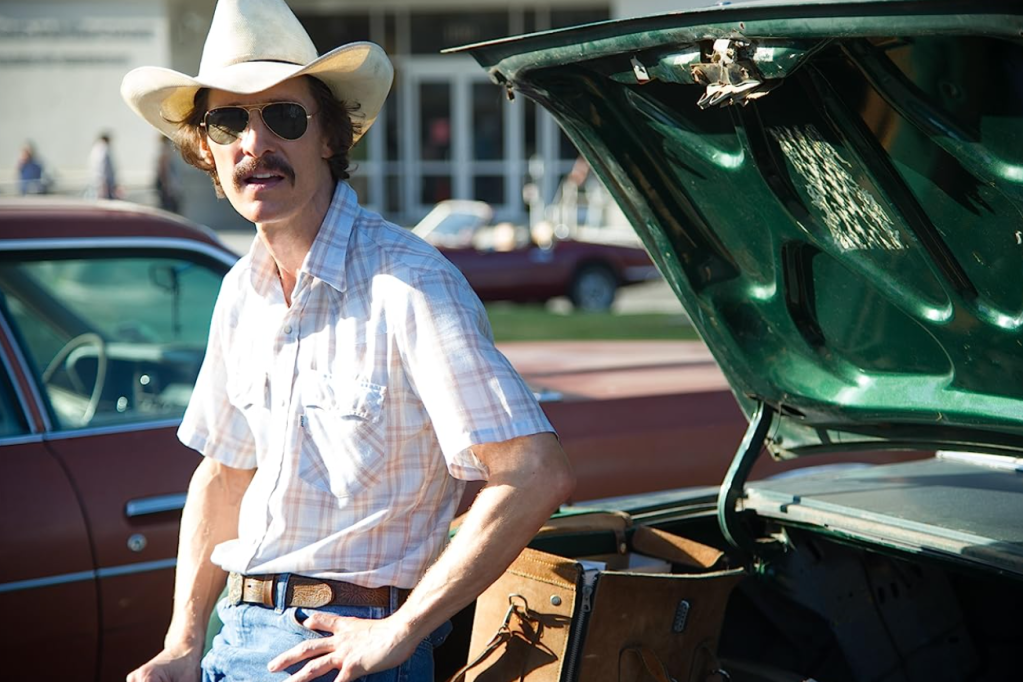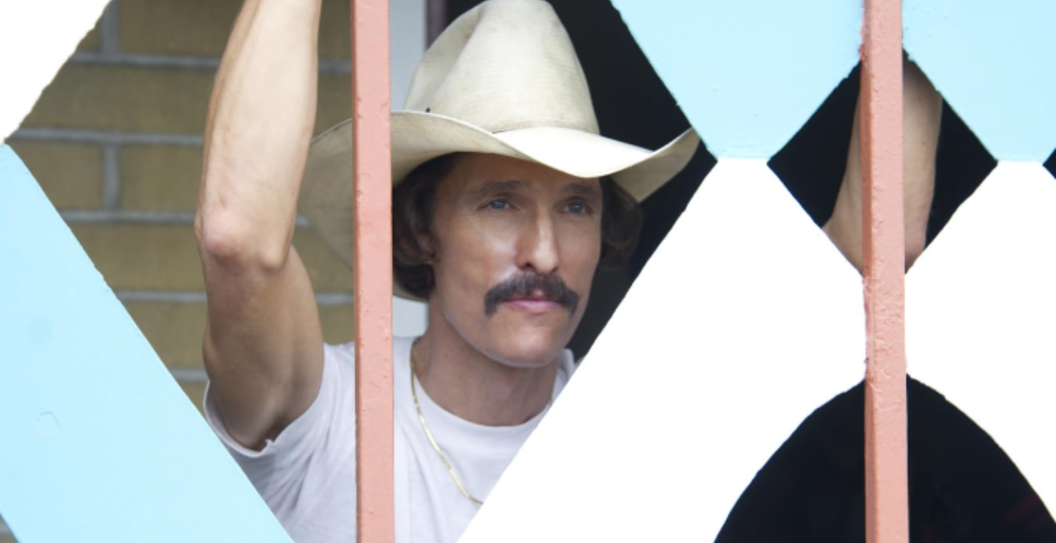Dallas Buyers Club, a film that masterfully brings to life the tumultuous era of the AIDS epidemic in the 1980s, turns 10 years old on Nov. 1. Directed by Jean-Marc Vallée, this powerful drama is hailed as one of the most compelling portrayals of the AIDS crisis. Not only does it feature exceptional performances from its lead actors, Matthew McConaughey and Jared Leto, but it also sheds light on the emotional and social impact of AIDS during a time of fear, ignorance and discrimination.
Set in 1985, real-life figure Ron Woodroof (McConaughey), a homophobic electrician and scrappy rodeo enthusiast, is blindsided by an HIV diagnosis and given only a month to live. Despite his initial denial, he gathers himself and embarks on a daring mission, importing drugs from across the globe to provide untested concoctions to fellow AIDS sufferers in Dallas. Vallée captures the rawness of Woodroof's journey amid trailer camps, rugged construction sites and gritty rodeo pens. Vallée doesn't shy away from the harsh reality and suffering, yet he infuses the film with a pace and allure that keep things humming along briskly. The movie thrives on the narrative of an audacious outsider battling the establishment, as Woodroof transforms into both a hustler and an unlikely savior, blurring the lines between the two. Equally riveting is Leto's mesmerizing performance as a transgender AIDS patient who joins forces with Woodroof. With a resolute script by Craig Borten and Melisa Wallack, Dallas Buyers Club is an authentic, compelling and transformative cinematic experience.
Both Leto and McConaughey won Oscars for their performances. (For McConaughey, the "McConaissance" — a period where he shrugged off his stint of romantic comedies and revamped himself as a serious actor — was in full bloom.) And, more importantly, the film serves as a bittersweet reminder of how far we've come in the treatment of HIV/AIDS and how prejudicial medical policy thwarts scientific progress.
Dallas Buyers Club Was a Long Time in the Making

Focus Features
Dallas Buyers Club has such an Oscar-baity premise that one would think studios were flocking to the project. But the film remained in development hell for 20 years before seeing the light of day.
Fresh out of college, Borten interviewed an ailing Woodroof in the early '90s for three days, his tape recorder taking down the whole story. He was still unsure if he even wanted to be a filmmaker, but knew he had something incredible. "I remember thinking, 'This is bigger than life itself,'" he would later recall. Woodroof died a month after the interview.
But after Borten finished the script, he struggled to find anyone to finance the project — even with star power behind it. First Woody Harrelson was set to play Woodroof. Then Brad Pitt. Then Ryan Gosling. The big names came and went as the project gained momentum before dying on the vine.
Borten says he understands why the project was poison to so many would-be financiers. While stories about the LGBT community beating the odds and sticking it to the man were popular, Woodroof's life was markedly different. "This was the elevator pitch for my film: 'It's a story about a racist homophobe with AIDS who befriends a man who dresses as a woman. Then they both die.'"
It seemed as if Dallas Buyers Club would never get made. And as the rejections piled up, Borten slipped into depression and alcoholism.
But finally, in 2011, he met McConaughey. In between sips of a Corona, McConaughey told him the actor could get the film shot if he made it a top priority. Coming off roles including Ghosts of Girlfriends Past and Surfer, Dude, McConaughey didn't necessarily have the credibility for such a heavy role. But he did have something that proved just as effective: sheer willpower and the desire to be seen as a top-tier actor.
McConaughey made it clear to his agents that Dallas Buyers Club needed to reach the finish line. He even began his 400-calorie-per-day diet to stoke the flames under their butts. If their actor had whittled himself away to 130 pounds for a film that wasn't getting made, that wouldn't reflect too favorably on them as agents, now, would it?
Thanks to the persistence of Borten and McConaughey — as well as a last-minute financial save by a duo of wealthy Texas fertilizer tycoons looking to break into the film industry — Dallas Buyers Club began production.
The rest is history.
The Grassroots Movement that Changed Everything

Focus Features
Watching Dallas Buyers Club in 2023 is a humbling experience. HIV can be reduced to untraceable levels with just a pill a day. And much of the success we've had in treating HIV began with grassroots organizers and activists such as Woodroof and his Buyers Club breaking the rules to provide life-saving treatment and expose a broken system.
The HIV/AIDS epidemic first emerged in the early 1980s, spreading fear and uncertainty among the public and medical community alike. At the time, HIV was a relatively unknown virus, and the medical community struggled to understand the disease's causes, transmission and progression. The lack of effective treatments exacerbated the crisis, and many people faced stigma, discrimination and limited access to medical care. Some patients were given placeboes of the life-saving drugs they needed. Others were outright rejected from hospitals by ignorant staff terrified of the disease spreading. And because the disease hit stigmatized groups the hardest, the Food and Drug Administration was slow to respond.
Enter Woodroof and the Dallas Buyers Club, who circumvented the FDA by acquiring unapproved HIV/AIDS drugs from abroad and selling them to patients in need. Woodroof, along with other activists, started advocating for changes to FDA regulations to speed up the approval process for potentially life-saving drugs. Their activism drew attention to the dire situation of people living with HIV/AIDS and the urgent need for more-accessible treatment options
The Dallas Buyers Club's impact went beyond simply providing access to experimental drugs. By challenging the status quo, it ignited a broader conversation about patient rights, medical research and the need for faster drug approval processes. The club highlighted the inefficiencies in the healthcare system, especially in terms of providing timely and affordable treatments for life-threatening conditions.
As public awareness grew and advocacy efforts intensified, pressure mounted on the FDA to expedite drug approvals. This ultimately paved the way for faster review processes, leading to more effective and accessible treatments for HIV/AIDS patients in the years that followed.
Today, HIV patients can live full and healthy lives, and the Dallas Buyers Club remains an emblematic example of grassroots activism and resilience in the face of adversity. Their story reminds us of the power of human agency in driving positive change, even in the most challenging circumstances.
Dallas Buyers Club is available to rent on Amazon Prime Video and AppleTV.




